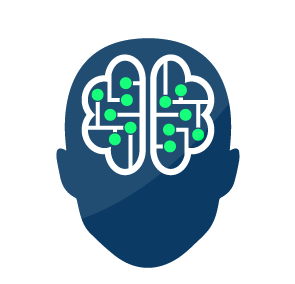PHOTO GALLERY | Neuro Rehab VR creates virtual and augmented reality therapy games to help patients with traumatic brain injuries, neurodegenerative diseases, or those who have suffered a stroke.
Steve Guengerich speaks at the UTD Big Idea Competition 2017.
BY HEATHER NOEL • NOV 17, 2017
From giving attraction maps the augmented reality treatment via a mobile app to an unmanned aerial system capable of monitoring air quality, University of Texas at Dallas students offered a variety in Thursday’s Big Idea Competition final.
But, it was Ph.D. student Veena Somareddy who snagged the top $15,000 prize as well as the $2,500 Diversity and Inclusion Award with Neuro Rehab VR.
Neuro Rehab VR’s Veena Somareddy with Blackstone Launchpad’s Bryan Chambers at UTD’s Big Idea Competition 2017.
Her startup is working to disrupt the field of physical therapy with virtual and augmented reality games leveraging the brain’s neuroplasticity.
“Research suggests that exercise with functional goals and targeted repetition can increase and form new neural pathways in the brain.”
Veena Somareddy
Suffering a stroke or traumatic brain injury can change a person’s life forever leaving them with long term disabilities.
With physical therapy and cognitive training, the brain does have the ability to recover, said Somareddy, who is a Neuro Rehab VR co-founder and software platform engineer at Fort Worth’s Neurological Recovery Center, where the therapy games are currently being used.
“Research suggests that exercise with functional goals and targeted repetition can increase and form new neural pathways in the brain. Our games are designed to do exactly that,” Somareddy said.
The startup has developed three games so far that focus on different areas of the body and brain. Patients at the Neurological Recovery Center have been using them, but there are plans to expand to five more clinics across the U.S. by the end of the year.
With the Big Idea prize money Somareddy said Neuro Rehab VR will hire more software developers. Currently, it’s just her and an intern filling those roles.
Other finalists in the startup pitch competition put on annually by the university’s Institute for Innovation and Entrepreneurship didn’t go home empty handed. This year’s prize pool was $80,000 and included new categories such as diversity and inclusion and social impact. Beyond students, UTD faculty, staff, and alumni were also recognized for their entrepreneurial work.
Cthrough won the $10,000 second place prize for its AR attraction map app. AltaAir received $5,000 for coming in third with its UAS for monitoring air quality. It also was named the Best Undergraduate Idea, which included a $2,500 prize.
Alta Air team won the best undergrad pitch at the UTD Big Idea Competition 2017.
Here are others honored Thursday night:
Biggest Social Impact — Skyven Technologies, founded by Arun Gupta, a UTD alum
Biggest, Most Innovative Idea — Brain Performance Institute
Best Undergraduate Pitch — AltaAir
UTDesign Startup Challenge Winner — Simple Biomedical
UTDesign Startup Challenge Winner — OnPoynt Aerial Drone Solutions
“If you truly are disruptive and innovative, you will polarize people.”
Guy Kawasaki
This year’s Big Idea judges included Julie Nickols, partner at Haynes and Boone, Courtney Caldwell, co-founder of ShearShare, Jeff Williams, partner at Interlock Partners, and Bob Metcalfe, co-founder of Ethernet and director of innovation at the University of Texas at Austin. Guy Kawasaki, a former Apple executive and current chief evangelist at Canva, also served on the judging panel and gave a keynote speech about the art of innovation.
Kawasaki said being an innovator means learning to ignore the naysayers.
“If you truly are disruptive and innovative, you will polarize people,” he said.
https://dallasinnovates.com/medical-vr-startup-takes-first-at-utd-big-idea-competition/


